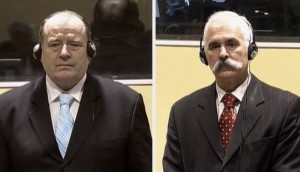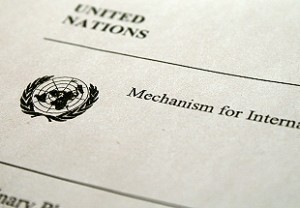 Today, Radovan Karadzic has filed an appeal to the UN’s Mechanism for International Criminal Tribunals against his conviction by the International Criminal Tribunal for the former Yugoslavia (ICTY) in March this year.
Today, Radovan Karadzic has filed an appeal to the UN’s Mechanism for International Criminal Tribunals against his conviction by the International Criminal Tribunal for the former Yugoslavia (ICTY) in March this year.
The 238-page appeal “details 48 substantive and procedural errors” that led to an incorrect verdict, according to a statement issued by Karadzic’s lawyer Peter Robinson.
“Unless corrected, flawed trials and unjust judgments like mine will only accelerate the flight of countries such as South Africa and Russia from an international legal system that is politicised and based on double standards,” Karadzic said in the statement.
“It will also ruin the chance for international justice to succeed in the long term by establishing legal precedents based on short-term political expediencies,” the former Bosnian Serb political leader added.
Karadžić was charged with responsibility for atrocities including the siege of Sarajevo and the 1995 massacre of 8,000 Muslim men in the Srebrenica enclave. Continue reading

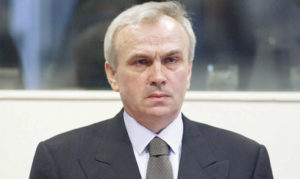
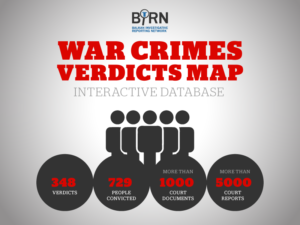 The Balkan Investigative Reporting Network has launched a unique database of the publicly-available final verdicts delivered in 386 war crimes cases by courts in the former Yugoslavia and by the International Criminal Tribunal for the former Yugoslavia (ICTY) in The Hague.
The Balkan Investigative Reporting Network has launched a unique database of the publicly-available final verdicts delivered in 386 war crimes cases by courts in the former Yugoslavia and by the International Criminal Tribunal for the former Yugoslavia (ICTY) in The Hague.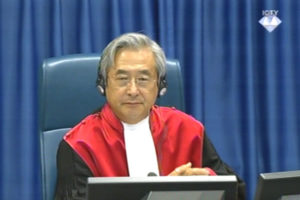 Former ICTY Judge Kwon O-gon gave a TV interview this month during which he shared his story of bringing justice for the victims of one of the most atrocious and devastating wars since World War II.
Former ICTY Judge Kwon O-gon gave a TV interview this month during which he shared his story of bringing justice for the victims of one of the most atrocious and devastating wars since World War II. Goran Hadžić, the former Croatian-Serb rebel leader,
Goran Hadžić, the former Croatian-Serb rebel leader, 